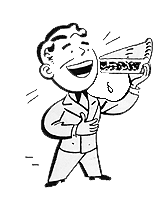»Cod
When I first read Mark Kurlansky's Cod, a "biography of the fish that changed the world", I did not enjoy the book. His writing jarred me. Despite the great idea, of framing historical events such as the discovery of America and the American Revolution, in the context of our relations with cod, his run-on sentences and peculiar transitions wore on my nerves.
I am enjoying the book more on this second reading, but still find Kurlansky's writing amateurish, inelegant. He has an excellent theme, and innovatively organises the book not strictly around a historical timeline, but also around cultural phases concerning the cod. He examines the discovery of North America from the fisherman's perspective, and how trade routes through the Bay of Biscay, the Irish Box, the North Sea, and ultimately to the Newfoundland and Maine seaboard. Kurlansky intersperses recipes, anecdotes, and songs about the fish: ugly though it may be, its flaky white flesh has inspired much in the way of food and even some Catalonian creation myth.
When I was but a wee lad, I saw autumn come in to Pittsburgh as the leaves in the parks nearby turned colour, as the wind picked up and blew the falling leaves in bright swirls, and as the Italian grocers in the Strip District unloaded wooden boxes of what looked like ... wood. Turns out that the stiff, pine-coloured contents of the crates were bacalao, the peculiar dried, salted cod known and loved throughout the Mediterranean. After several days of soaking in a tub, the fish would be ready for cooking. Or one could leave it dry and chip bits of it into a dish for flavour. Or one could use it to settle an argument, and hit an opponent upside the head.

